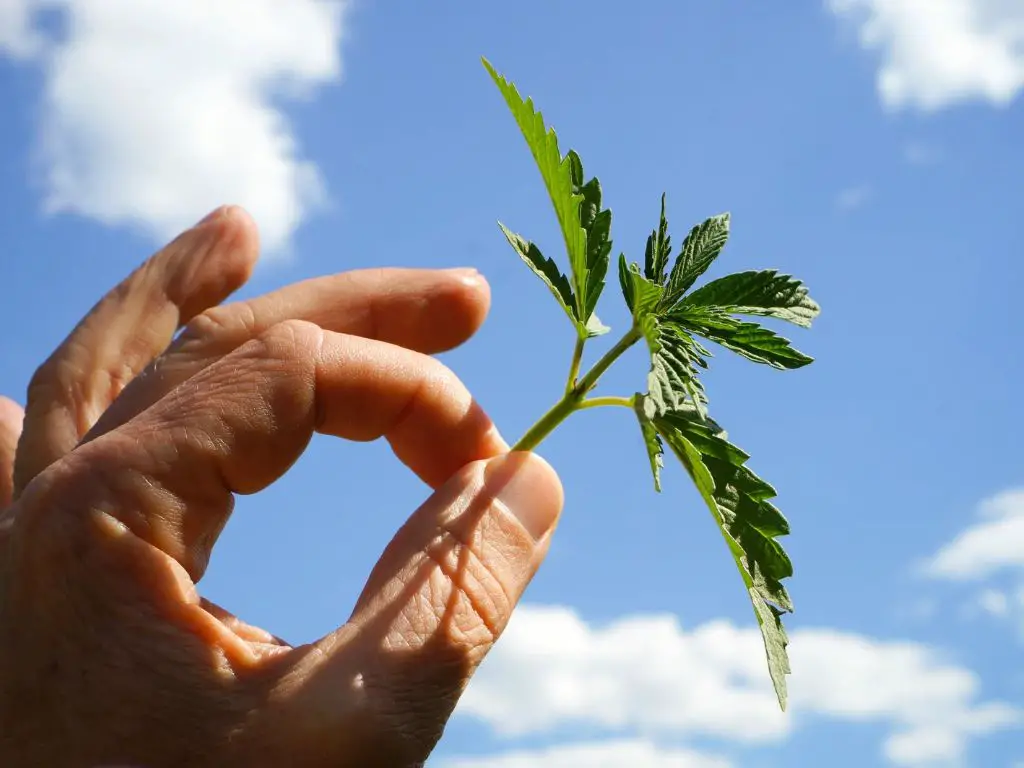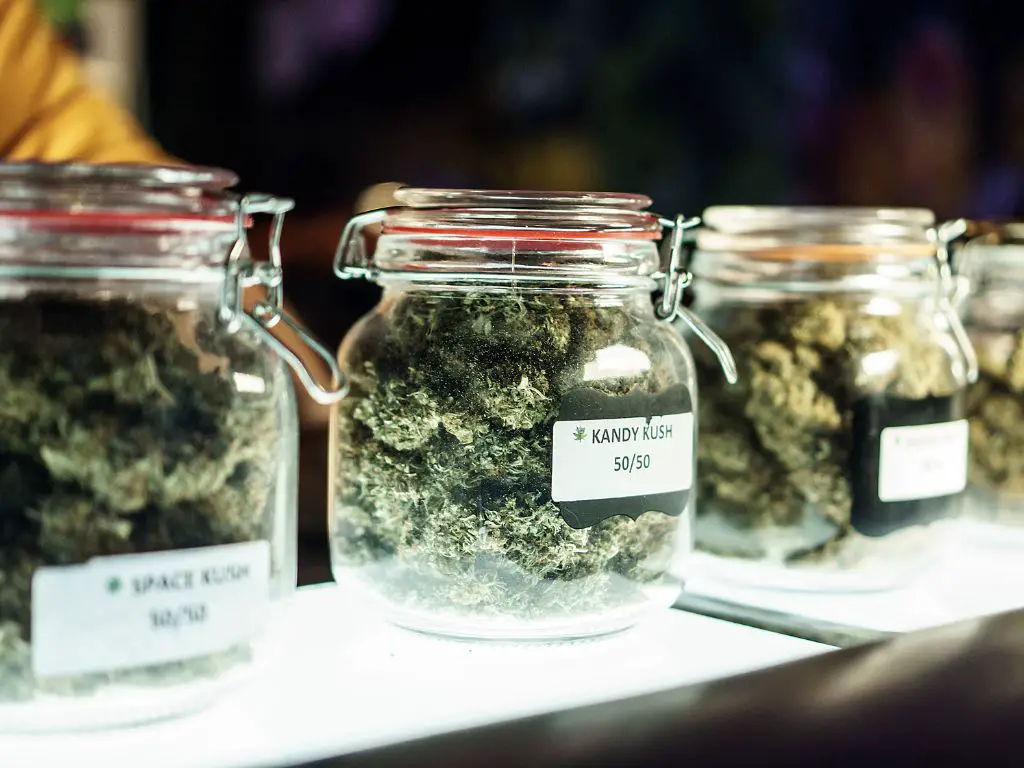Cannabis and marijuana are two terms that have become increasingly popular in recent years. As the use of cannabis and marijuana has grown, so too has its potential for both medicinal benefits as well as recreational use. While there is still much debate over the safety of these substances, it is important to understand their differences and potential implications for society at large.
At its most basic level, cannabis refers to any plant belonging to the genus Cannabis sativa or indica species; whereas marijuana specifically refers only to female plants from this same family that contain high levels of tetrahydrocannabinol (THC). THC is a psychoactive compound found within certain varieties of cannabis which can produce feelings ranging from relaxation through altered states of consciousness when consumed in various forms such as smoking or eating edibles.

The medical community continues to explore ways in which cannabinoids may be beneficial for treating illnesses including pain relief, seizure prevention/reduction, anxiety reduction among others; however more research needs be done before definitive conclusions can be drawn regarding efficacy and long-term effects on health outcomes due largely because many countries have yet legalize clinical trials related study designs involving human subjects using either form (cannabis vs marijuana). In conclusion while there remains many unknowns surrounding these substances’ usage both medically & recreationally further investigation into their properties could potentially lead us towards new treatments with improved quality care patient outcomes globally speaking.
Why cannabis should not be legalized
The legalization of cannabis has been a hotly debated topic in recent years, as many believe that it should be legalized for medical and recreational purposes. However, there are several important reasons why cannabis should not be legalized.

First and foremost is the potential health risks associated with using marijuana.
- Studies have shown that long-term use of marijuana can lead to increased risk of mental health issues such as depression and anxiety, while also increasing the risk for developing chronic diseases like lung cancer or heart disease.
- In addition, some studies suggest that regular use of marijuana can impair cognitive functioning over time which could potentially lead to decreased productivity in professional settings or even harm relationships with coworkers if used during work hours.

Another major concern when considering legalizing cannabis is its potential impact on public safety issues
- such as impaired driving due to drug intoxication
- an increase in criminal activity related to trafficking illegal substances across state lines or selling them illegally within states where they are legalised.
- Additionally , research suggests that adolescents who begin using marijuana at an early age may develop addiction problems later on in life more so than those who abstain from its use altogether.
- This could put a strain on our already strained healthcare system by requiring additional resources needed for treatment programs aimed at helping individuals overcome their addictions.

Lastly, since most employers require pre – employment drug tests prior to hiring new employees
- legalizing cannabis would make it difficult for companies seeking out qualified candidates if applicants fail these tests simply because they legally consumed products containing THC (the active ingredient found within Cannabis).
- Therefore this would create yet another barrier preventing individuals from obtaining gainful employment opportunities which further perpetuates economic inequality amongst lower income communities disproportionately affected by the war on drugs throughout history.
Furthermore, there is still a lack of research on the long-term effects of cannabis use, so the potential risks and harms are not fully understood. Until more research is done and the potential risks are better understood, it is important to err on the side of caution and not legalize cannabis.
🔬 Subscribe to SciMail
Get the latest science discoveries straight to your inbox!

Top 10 Reasons why cannabis should not be legalized
- Cannabis is a psychoactive substance that can have harmful effects on the user’s mental and physical health.
- Regular use of cannabis can lead to addiction and has been linked to an increased risk of mental health disorders.
- Cannabis can impair cognitive function and coordination, leading to accidents and injuries.
- Legalizing cannabis would increase its accessibility and potentially lead to an increase in its use, which could result in more crime and social problems.
- It could also lead to an increase in the number of people driving while under the influence of the drug, posing a danger to public safety.
- There is still a lack of research on the long-term effects of cannabis use, so the potential risks and harms are not fully understood.
- Legalizing cannabis would send a message to young people that it is safe to use, which could increase its use among minors.
- The production and distribution of cannabis would be difficult to regulate and could lead to illegal activity.
- Legalizing cannabis could also lead to an increase in the use of other drugs, as it is often used as a gateway drug.
- The potential negative effects on health and society, as well as the lack of research on the long-term effects of cannabis use, are strong arguments against legalizing this drug.

All things considered, there are numerous valid reasons why we should not legalize Cannabis despite popular opinion suggesting otherwise ; ranging from concerns about public safety & personal well being all the way up through economic implications presented by making it available commercially via dispensaries etc. For these reasons alone we must take into consideration any possible ramifications before taking steps towards full scale legalization nationwide
Reasons why shouldn’t marijuanas be legalized
Marijuana is a controversial topic, with many arguing that it should be legalized. However, there are several reasons why marijuana should not be legalized.

Health Risks
- First and foremost, marijuana use can lead to health problems such as respiratory illnesses and mental illness.
- Additionally, legalizing marijuana could increase the risk of addiction among users by making the drug more accessible and socially acceptable.
- Furthermore, legalizing marijuana would increase its availability to minors who may not understand the risks associated with its use or have access to proper education about it.
- Finally, legalization could also result in an increased number of impaired drivers on our roads due to THC’s effects on coordination and reaction time when driving under its influence which can cause serious accidents resulting in injury or death for innocent people sharing our roads.

Economic Costs
In addition to these potential health risks associated with using cannabis recreationally; legalising Marijuana would also bring significant economic costs along with it due taxation implications for governments attempting regulate sale of this substance while at same time providing resources needed combat any potential negative consequences from increased usage within society . This means that even if tax revenues were generated from sales , they might not cover costs related regulation enforcement, treatment programs etc.
Social Costs
Finally , legalisation Marijuana has been shown have adverse effect social norms especially amongst younger generations where attitudes towards drugs become increasingly lax leading greater acceptance irresponsible behaviour including underage drinking & smoking tobacco products (which often accompany recreational Cannabis consumption ). There is strong evidence suggest that exposure these substances during formative years increases likelihood developing addictions later life further contributing overall decline public wellbeing & safety standards within affected communities.

Overall then there clear need consider all factors before deciding whether legalize Marijuana given long-term implications both individual citizens wider society as whole will face if decision taken lightly without sufficient foresight into possible consequences
In summary, the potential negative effects on health and society, as well as the lack of research on the long-term effects of cannabis and Marijuana use, are strong arguments against legalizing this drug.


Leave a Reply